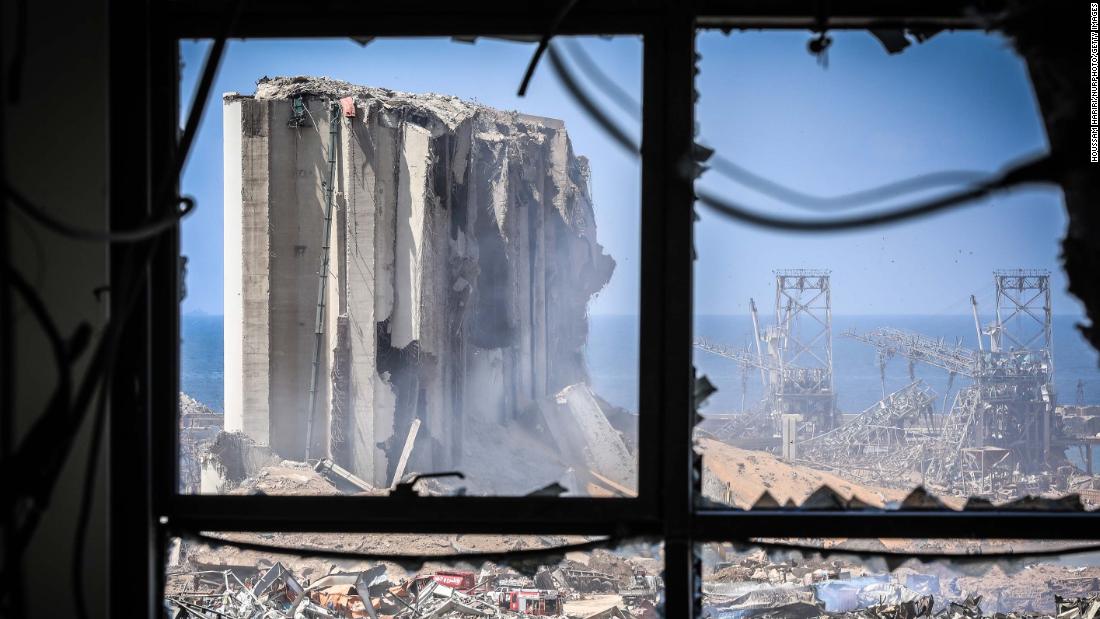
"This substance, if ignited, will lead to a large explosion, and its outcome will almost obliterate the port of Beirut.
The damage was estimated at between $3.8 and $4.6 billion.Â
It is clear that successive leaders — four governments and three prime ministers — either would have or should have known about the threat posed by the material, and that little was done to address the danger.  But what is far from clear, 12 months on, is what ignited the ammonium nitrate.According to a report by Human Rights Watch, Tarek Bitar, the judge charged with investigating the explosion, is looking into several theories. One is that sparks from welding works that day caused a fire in hangar 12, the warehouse where the chemical was being stored.  Another is that an Israeli strike was the catalyst, though Lebanese aviation officials reported that local radar systems did not detect military aircraft over Lebanese airspace in the hour or so before the blast, Israeli officials have denied any involvement, and Bitar himself has said the Israel theory was highly unlikely, according to HRW's report. Bitar is also exploring the theory that the explosion was an intentional act, according to HRW."Speculation that Hezbollah may have wanted to destroy the ammonium nitrate at the port supposedly to hide that some of the ammonium nitrate in the stockpile had been used by Hezbollah's ally Bashar al-Assad in Syria to produce barrel bombs increased as reporting emerged regarding the connection between the cargo owners and individuals sanctioned by the US for alleged links to Assad," the report said, referring to an investigative report by local journalist Firas Hatoum.Hatoum linked the shipment of ammonium nitrate -- which that arrived in 2013 and was unloaded the following year -- to companies linked to, according to the HRW report, Syrian-Russian businessmen "who have been sanctioned by the US government for acting on behalf of the Syrian government of Syrian President Bashar al-Assad."Hezbollah has repeatedly denied involvement in the blast.According to Reuters, an FBI report estimated that only 20% of the 2,755 tons of ammonium nitrate brought to the port in 2013 actually detonated.
The HRW report also cited an August 2020 investigation by the Organized Crime and Corruption Reporting Project in which three European intelligence sources estimated that the size of the blast was equivalent to as little as 700- 1,000 tons.
The theory goes that the ammonium nitrate was left at the port, where it could be siphoned off by factions in Lebanon. Caretaker Prime Minister Hassan Diab told CNN he only found out about the existence of the ammonium nitrate in early June 2020, and immediately requested further information.